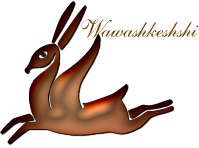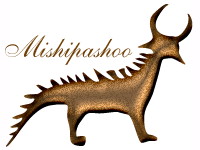Introduction
 Boozhoo! It is a statistical fact that First Nations peoples across this beauitful planet experience the worst health conditions, challenges, and outcomes of all the Earth's people. There is a serious disparity in mortality, morbidity, resistance to pathogens, satisfaction of health determinants, mental health and well-being, addiction and suicide rates, and access to health resources and services. This discrepancy in health support and everyday care is appalling, especially when we consider that the First Nations people have a recognized right to exercise Self Governance with full authority to determine their own health care system and supports.
Boozhoo! It is a statistical fact that First Nations peoples across this beauitful planet experience the worst health conditions, challenges, and outcomes of all the Earth's people. There is a serious disparity in mortality, morbidity, resistance to pathogens, satisfaction of health determinants, mental health and well-being, addiction and suicide rates, and access to health resources and services. This discrepancy in health support and everyday care is appalling, especially when we consider that the First Nations people have a recognized right to exercise Self Governance with full authority to determine their own health care system and supports.
What is missing is a decidedly First Nations focus on healing and health. This is beginning to change, but the changes are in their infancy. There are several organizations across the globe that combine First Nations ways of thinking, teaching, learning, culture, and even language. But there are few programs that focus entirely on First Nations pre-colonial healing practices to the point that students could gain practitioner level skills and knowledge. It is these types of programs that could strongly support true First Nations self-governance in health care. The overall goal should be First Nations controlled and sustainable health systems that adopt a holistic, culturally appropriate approach. This goal can only be attained when aboriginal people are able to develop the leadership, healing, caring skills, and knowledge to fashion a health care system grounded in First Nations traditional practices, that will meet their evolving needs in empowering and cultural ways.
National and local governments in most countries across the globe are now engaging in dialogue, funding, and structural planning with First Nations leaders to explore ways to support health related self governance initiatives. It is obvious that education is needed to prepare First Nations health professionals in all categories, including health administrators, health educators, doctors, nurses, pharmacists and traditional medicine experts, including herbalists, physio and occupational therapists, mental health professionals, elder care experts, and so on. Post secondary institutions are receiving funds to integrate aboriginal knowledge into existing curriculum at a phenomenal rate. Funds are also being allocated to support First Nations leaders to explore best practices, research traditional ways, and tap the wisdom and capabilities of tribal elders to develop a body of knowledge and the structures needed to initiate local First Nations health care services and systems.
Moving Beyond the Shadow
 The dark shadow of colonization, the reservation systems, cultural genocide, and the effects of residential schools still creates a huge barrier in First Nations health care system development and participation. The legacy of residential schools and racist, culturaly-insensitive encounters in the mainstream health care system taints the perceptions, experiences, and choices of First Nations people even now. Systems need to be put in place to help Aboriginal people to resolve issues spurred by colonization and to remove any hint of continued oppression and hegemony within the current health care system. It is important to acknowledge these issues as new systems are planned and organized. The First Nations people need to realize that these past experiences were imposed by a culture that did not understand, that was hardened to the fact that the First Nations people already had their own powerful systems for teaching, healing, and staying well and balanced. Their ignorance is unforgivable, but is/was just that - ignorance and arrogance of weak narrow-minded people towards more powerful yet tolerant and respectful people. By recognizing this, they will hopefully be able to move forward and reclaim their own knowledge in these times of global health threats, eco-system decay, and serious social unrest. The First Nations ways of governing and living could be a key to the continued survival of ALL people!
The dark shadow of colonization, the reservation systems, cultural genocide, and the effects of residential schools still creates a huge barrier in First Nations health care system development and participation. The legacy of residential schools and racist, culturaly-insensitive encounters in the mainstream health care system taints the perceptions, experiences, and choices of First Nations people even now. Systems need to be put in place to help Aboriginal people to resolve issues spurred by colonization and to remove any hint of continued oppression and hegemony within the current health care system. It is important to acknowledge these issues as new systems are planned and organized. The First Nations people need to realize that these past experiences were imposed by a culture that did not understand, that was hardened to the fact that the First Nations people already had their own powerful systems for teaching, healing, and staying well and balanced. Their ignorance is unforgivable, but is/was just that - ignorance and arrogance of weak narrow-minded people towards more powerful yet tolerant and respectful people. By recognizing this, they will hopefully be able to move forward and reclaim their own knowledge in these times of global health threats, eco-system decay, and serious social unrest. The First Nations ways of governing and living could be a key to the continued survival of ALL people!
Reclaiming Traditional Ways
The potential promise of self-governed health care systems that meet the needs of aboriginal people, and allow aboriginal health care providers to practice in holistic, traditional ways offers both hope and a realistic future goal for all involved. Research shows that many First Nations people of the world are very interested in preserving and practicing their ancestral ways of healing and staying healthy.
“Although Aboriginal people have moved far away from the lifestyles of their ancestors, they still see value in the traditions and practices that made them unique – including medical traditions ranging from herbal therapies to forms of psychotherapy. Often, they find that mainstream health services do not understand or fully meet their needs. They want to re-examine practices that were once suppressed or ridiculed for their possible usefulness today” (1. Royal Commission on Aboriginal Peoples.1996).
“Any discussion of health services for Aboriginal peoples in Canada should be prefaced by recognition that prior to European contact, Aboriginal communities in what is now Canada already had regionally specific, locally controlled, culturally appropriate systems of health care in place, many of them quite sophisticated" (2. Smylie, 2001, p. 2).
This site has been developed in support of Self Goverance in health for all First Nations and aboriginal people. May we all witness the resurgence of Aboriginal wisdom and practices and the robust growth in First Nations esteem, power, influence, and well-being.
1. Royal Commission on Aboriginal Peoples. (1996). Highlights from the Report of the Royal Commission on Aboriginal Peoples. Ottawa: Ministry of Supply and Services, Canada. 2. Smylie, J. (2001). A guide for health professionals working with Aboriginal peoples: Aboriginal health resources. Policy Statement of the Society of Obstetricians and Gynaecologists of Canada. Journal of SOCG, March, Report No. 100.
Public Area
Half of this site is open to the general public on the Internet, available to anyone interested in examining the current situated health of First Nations, Metis, and Inuit people with a particular focus on Canadian aboriginal peoples. However the content of this site is transferable to most indigenous peoples across this beautiful planet. The concern is the need for support, advocacy, and knowledge related to the existing experience of aboriginal people with the modern health care system and their need for culturally sensitive, supportive endeavors that help them move forward towards Self governed health care.
This open area provides insights into the current situation of aboriginal health and well-being including resources and commentaries on the most critical forces that have impacted on First Nations health over the past two to four centuries. It also leads to resources and information on traditional First Nations healing practices including nutrition, fitness, physical wellbeing practices, holistic balance including emotional and spiritual well-being, and healing from the effects of colonization.
In addition, the site blog provides updated news, announcements, and links to resources such as articles, papers, websites, and videos that showcase movement toward self governance and healing for health and education within aboriginal communities. Links to particularly useful organizations are featured, to help the visitor find useful resources and widen their awareness of what is available or is being developed to support First Nations healing and wholeness in the 21st century. Not only that, but a view on how First Nations traditional knowledge and ways of living could actually boost the health and well being of all of the Earth's people is presented. Indeed, their knowledge may be the key to preserving the Planet, herself.
Protected Area
Half of this site is protected, intended for orientation purposes to familarize the BSN and BPN program faculty at Kwantlen Polytechnic University with the Aboriginal content that has been developed for their programs. This work has been funded by AHHRI grants from Health Canada, and serves as a guide to help faculty incorporate Aboriginal ways of being, doing, knowing, learning and teaching into the existing two degree programs.
The remainder of the protected links lead to other communities developed for the Kwantlen BSN program to work on their philosophical, pedagogical, and curriculum changes and development. A portion of the Nursing Pedagogy site is open to anyone interested in learning more about progressive educational practices such as critical pedagogy, praxis, ecological pedagogy, social justice, and informatics.
The final link in the Protected side of the sitemap leads to another related endeavor, First Nations Pedagogy Online This site is the culmination of a project funded by BC Campus that allowed two education experts, Sylvia Currie and June Kaminski, representing Nicola Valley Institute of Technology and Kwantlen Polytechnic University to create an online resource that builds on research, consultation, and community-based activities. This site provides best practices and support for online learning initiatives that are intended for aboriginal students, elders, educators, curriculum developers, and educational leaders.